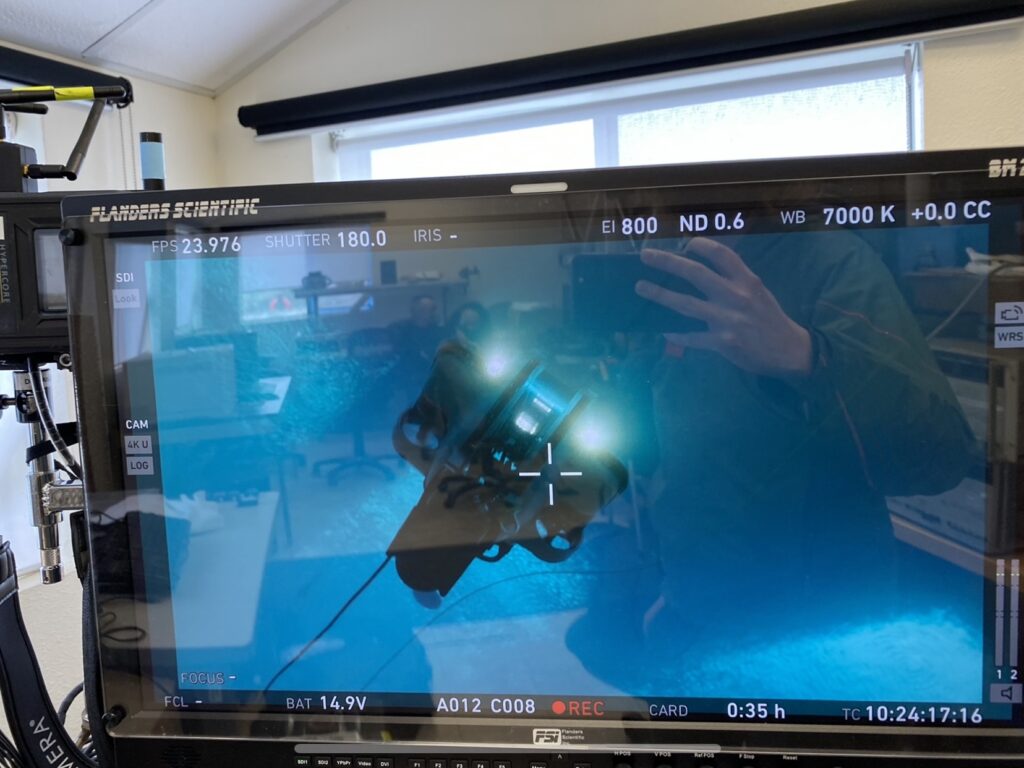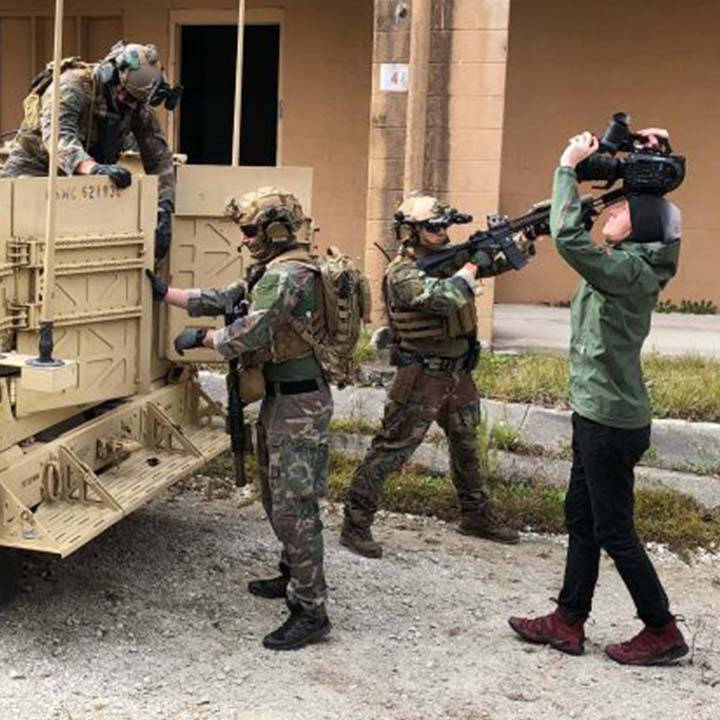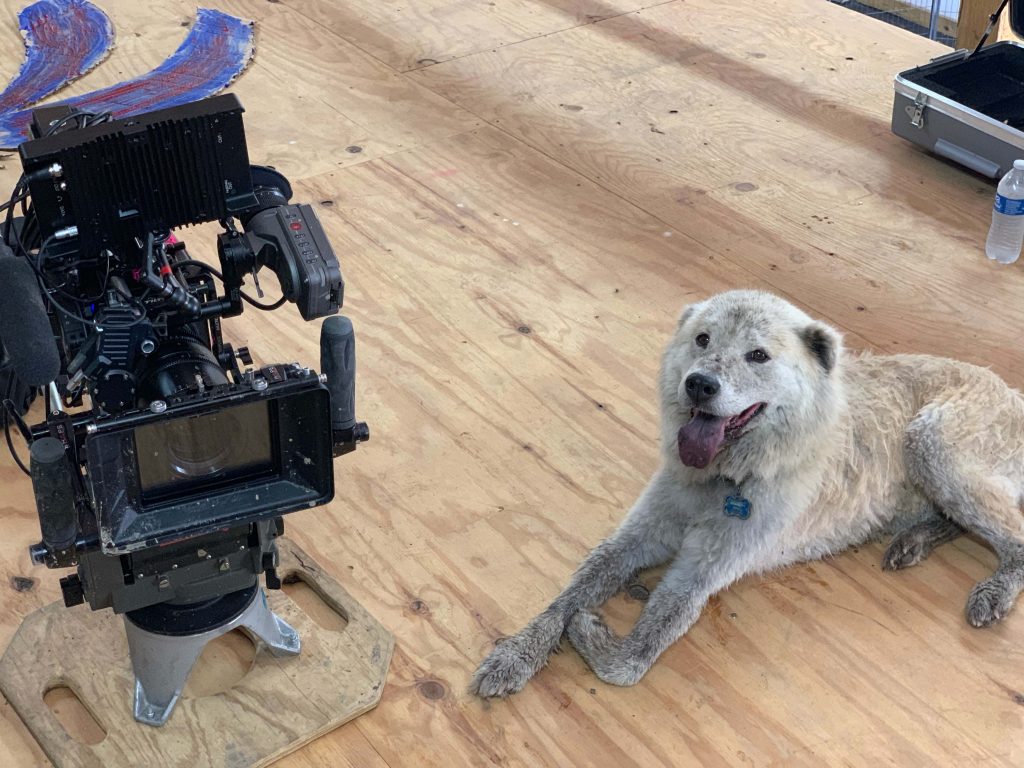Thoughts on Film: Production
...on production.
Steven Spielberg was asked what the hardest part of film making was. His answer? "Getting out of the car."
Production for me is, at least creatively, the most straight-forward part of the process. I've done most of the creative work for months before filming anything, so I've already "watched" the film several times in my head. It's exciting to see this thing that's in your head take shape and how the actors play with it to make it their own. When it's hitting the marks, you really feel it. You keep leading the boat through treacherous waters and at the end, once the storm breaks, you can finally take a seat on the deck and enjoy the sunrise. However, there are a number of stressors until then - every sunrise affects your lighting and every wind gust affects the sound on a take.
For me, when starting production I've done most of my work. I know what I want the picture to look like. Every day is trying to push and will that into existence. I've (hopefully) thought through most of the roadblocks I'll encounter, which allows me time and energy to navigate the new ones that inevitably always arise. Not every room or location looks exactly how you see it in your head. Even if you've written for a particular location, especially on lower budgets, the lighting isn't always hitting the same way as you see it. There's less foliage on the trees because of a rain storm that hit the week before. There's more foot traffic than when you did your scouting. With larger budgets these are more controlled, but something will always come up. You need to be nimble and quick to think on your feet. Going back to Steven Spielberg, when he was making Jaws, they couldn't get the shark to work properly. It was causing massive issues. Some filmmakers may have shot what they could, or may have been forced to because of budget. He is a great director not just for the films he makes, but for the ways he's able to get through these roadblocks. He's quick on his feet. He blocks scenes as he sees the room and knows how to problem solve. He speaks film as if it were his native language.
During production, I like to cut scenes as I film them. I'll usually get home and start cutting what I shot that day. I block some of the scenes and look for anything that feels different from the voicing I'm trying to follow in the story and the shots. Most people don't do this, and because of time sometimes you simply can't. I like to do it because it gives me an idea of the pace of the cut and any redirects I need to make the following scene. I also like to cut the film as soon as I film it so I remember small nuances in why I filmed something in a particular way.
I'd love to shoot chronologically as much as possible, but generally this just doesn't happen because of how you need to block time for a shoot. The best book I've ever read on this was "Making Movies" by Sidney Lumet. I love his approach on being efficient with film making. He plans his shoots based on the proximity of locations. He shoots quickly, and he keeps his films under budget. He was successful in this approach and was able to make around a film every year during his career.
On a short film, I like to shoot with small crews, sometimes only me and an assistant. This is largely due to budget and time. Paul Thomas Anderson visited Stanley Kubrick on the set of Eyes Wide Shut. PTA asks, "Do you always work with so few people?" Kubrick responds, "Why? How many people do you need?" I think about this story often. I try to be mindful that the glamour of a film shoot should never supersede the intention of it. This isn't to say large film shoots aren't necessary at times - many commercial shoots I'm on have crews that rival motion pictures. Each role is an important part in the final picture, and when you have the budgets you're also giving stability to the film ecosystem as a whole. However, I feel that sometimes I get better performances and more time to focus on them with fewer people on my personal projects.

Production budgets are a major part of production. For commercial shoots, you have a healthy budget and can hire everyone you need to ensure you're getting what you want. You get the equipment, monitors, and lighting you need. There's a different style of pressure in this because you really need to make sure you understand the client and what they need. You might need to change your coverage and make sure to get a lot of extra shots than what's scripted or story boarded - sometimes those notes don't come through until long after the shoot takes place. And that's ok, but you've got to anticipate that. I think for aspiring film makers, working in commercials is one of the best ways you can learn how to manage the business-side of film.
For smaller independent films, production budgets get murkier. This is because a lot of times there simply is no budget or people are working far below what their market asking price is in order to create "art" with you. I think there's a huge responsibility when making these films. You put in extra work before the shoot to make sure you've done everything to make the film worth it for everyone. And you make sure everyone can be a part of that creative process. However, there are a lot of ways to get some funding for your films. There are film grants, contests, and crowd-funding sites. I haven't had much experience with them, but they're definitely useful tools to get a film off the ground if you don't have the resources yourself. However, I think there's something to be said for being scrappy and using what you have at your disposable to get something off the ground. If you get into the habit of that, you find yourself making less excuses to yourself about why you're not actively working on the project right now.

In the end, production is the crash landing that you spend months (or years) preparing for. You have to remain alert, focused, and most of all be ready to make a lot of decisions on absolutely everything. George Lucas said, "A director makes 100 decisions an hour. If you don't know how to make the right decision, you're not a director." I think all you can do is make a lot of films as experience and get confident in having the intuition to make important decisions at any given moment. This applies to every role, too. I believe good directors want to hire those that feel comfortable making quick decisions to questions involving their expertise and freeing up the director's list of items they need to be focused on. Production is hard work, it's fast-paced, but most of all, you get to capture all the footage you need to play around with in the edit.
